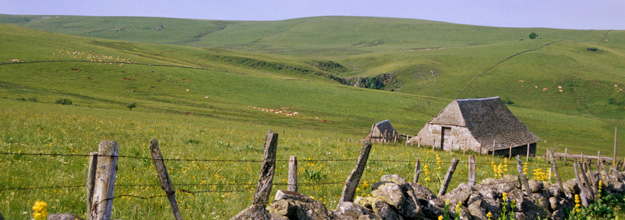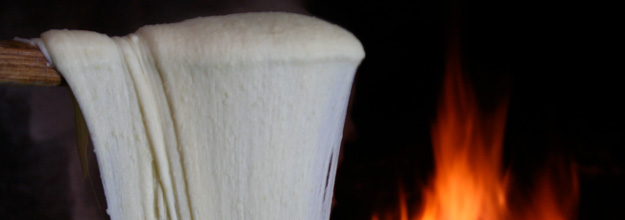Cultivating the land
"Aubrac shows that a land combining technological progress with the promotion of its natural and cultural heritage in a dynamic collective process can achieve remarkable development." Claude Béranger and André Valadier

"Aubrac shows that a land combining technological progress with the promotion of its natural and cultural heritage in a dynamic collective process can achieve remarkable development." Claude Béranger and André Valadier

Mid-20th-century methods turned farmers into mere producers of raw materials that the food industry processed into products and sold to consumers. The centuries-old ties between producers and consumers, consumers and the land, were sundered. Over time, consumers named products, breeds or other things they liked after the area or village whence they came: Laguiole cheese, Laguiole knives, Aubrac cows and Aubrac aligot. In the 1980s the association set out to put the finished product back at the heart of the system, becoming once again the purpose and source of meaning for the dairy activity.
The finished product, created by the dynamics of a terroir that has brought its added value back home, can now be called a "food product with deep local roots". Its overall quality can be compared to a summary indicator of sustainable development reflecting sound social, environmental and economic management of the land.
It is a vector of life, social organisation and respect for the environment and natural resources; it is economically buoyant and marks changes: these regions' shift from a subsistence tradition to the local creation of added value by harnessing human and natural resources is a process now called sustainable development.
"We are paying a high price for reducing farmers to mere cogs in the food industry's machine. We have done away with their environmental functions and their roles as creators of social and cultural ties and managers of the land, which the original meaning of paysan so beautifully expressed* [paysan, which corresponds to English "peasant" is derived from the word pays meaning "land" or "country"], in other words the occupation that keeps a land alive beyond the mere satisfaction of food needs… [few people] see how much farming, which half the world's population still practices, is a job with a future." Patrick Viveret in Pour un nouvel imaginaire politique (For a New Political Imagination).(dans Pour un nouvel imaginaire politique)

A research programme on the "multi-functionality of rural areas" by CEMAGREF (which in November 2011 became IRSTEA, the National Environmental and Agricultural Sciences and Technology Research Institute) came up with the idea of the "basket of goods with local roots", in other words a group of consumer products from the same area.
Certified Aubrac meat, charcuterie, gastronomy, knives, Laguiole AOP cheese and aligot belong to this "basket of goods with local roots" and, for the two cheese products, raw milk is what forms the strongest link with the natural environment and allows the farmer to remain a creator.
Researcher Dominique Vollet says the basket of goods effect "involves bringing together three conditions :
Several items illustrate the concept :
The Aubrac breed is expanding as its reputation spreads beyond its reproductive qualities. Two official guarantees of quality have already been assigned: "Bœuf fermier Aubrac" has been given Label Rouge certification and "Fleur d’Aubrac" has an IGP (Indication Géographique Protégée, "Protected Geographical Indication").
The production of Laguiole cheese, AOC since 1961 and AOP since 22 October 2001, has risen from just 25 tonnes a year in 1959 to 700 tonnes, the same level as in the early 20th century.
.Aubrac aligot, a formerly little-known dish that the Jeune Montagne cooperative developed based on a traditional local recipe and which has also applied for an IGP, is ever more popular: consumption is rising by over 20% each year.
Knife-making, which has required completely relearning the craft using modern techniques, has created 200 local jobs.
Tourism, which is "a unifying force that helps spread the basket, propelled by the outstanding success of Aubrac aligot, a dish that perfectly expresses local identity, the international reputation of Michel et Sébastien Bras and the gastronomic fame of places (Aubrac, Site remarquable du goût; Laguiole, Ville gourmande 2001). Tourism is booming in the part of Aubrac lying in the department of Aveyron, although activity is segmented by department."